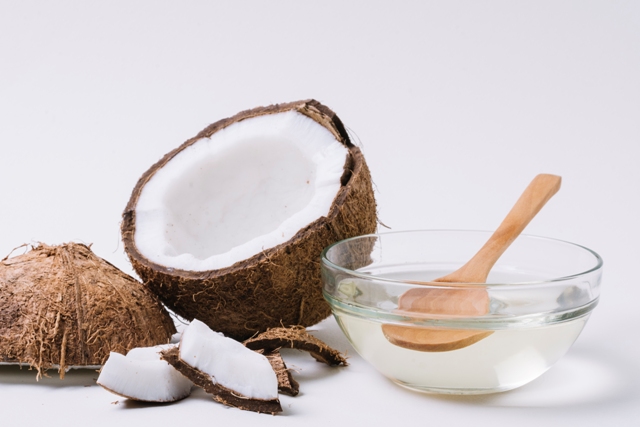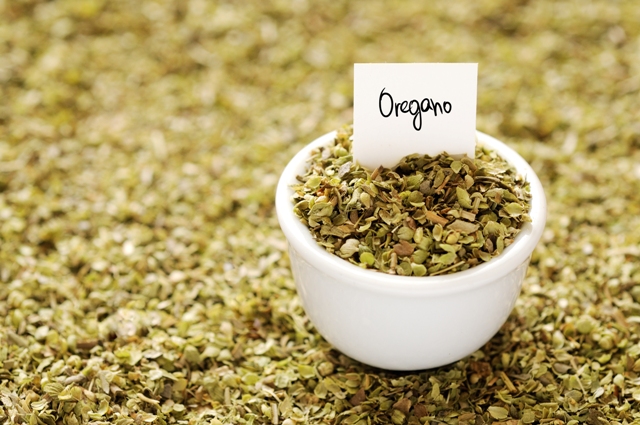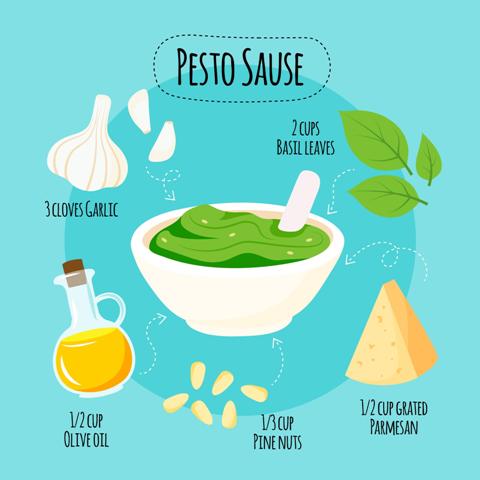Sauerkraut is very popular and low calorie condiment widely used for various medicinal and culinary purposes. The name is derived from two words that are sauer, which means sour and kraut, which means cabbage. It is basically prepared from fermented cabbage and considered as one of the most important therapeutic substances for gut health as it is loaded with probiotics.
Nutritional composition
- It contains lesser amount of carbohydrate, whereas it is a good source of dietary fibre
- It contains too some extent of proteins
- It contains negligible amount of fats and totally free from cholesterol
- It is packed with numerous important vitamins like Vitamin A, Vitamin C, Vitamin K, Vitamin B1, B2, B3, B6 and B9
- It is also loaded with various imperative trace elements like sodium, potassium, manganese, iron, copper, calcium and phosphorus
- Being a fermented product is contains probiotics as well, which play significant role in promoting gut health

How it is prepared?
Preparation of sauerkraut is not so hard task. Below points will discuss about the method of preparing sauerkraut –
- Good quality cabbage is required for preparing sauerkraut
- At first the cabbage should be finely chopped and should be placed in a bowl
- Then some extent of salt should be added to the chopped cabbage and should be massaged for about 5 minutes
- After that it should be kept aside for 20 minutes while a brine is formed
- Then the cabbage along with the resulting brine should be mixed well into a manson jar and it should be packed in an well manner
- While packing, it should be kept in mind that the top should be placed loosely so that the fermentation process can take place and bubble can formed. Finally sauerkraut will be obtained after completion of the fermentation process
- It is better to keep it at room temperature
- Due to the fermentation process the sauerkraut becomes dull in colour and the brine becomes cloudy

Health benefits
Role on immunity
- It contains several immune boosting nutrients thus its consumption is thought to be very effective for improving immunological responses of the body
- Its probiotic components are responsible for promoting the growth of intestinal beneficial microbes whereas helps in decreasing the number of harmful microbes within body as a result reduces the risk of developing infectious diseases
- It is also associated with stimulating the production of antibodies in body and enhances the resistance power, which ultimately lowers the susceptibility of becoming ill
- Its Vitamin C and iron components are also beneficial for maintaining a healthy immune system

Role o digestive health
- Consumption of sauerkraut is very effective for improving overall digestive health
- As mentioned above, being a fermented product it contains huge amount of probiotics, which help to enhance the growth as well as the number of intestinal beneficial microbes and significantly improves gut health
- It is also associated with enhancing the balance of bacteria within the gut, which helps to keep the gut lining healthy and prevents leaky gut. Stronger gut lining is directly linked with preventing unwanted substances from leaking into the body from the gut
- It is extremely useful for improving the symptoms of irritable bowel syndrome
- Fibre present in sauerkraut plays significant role in preventing constipation
- It helps to improve colonic health as well
- It is also very effective for reducing the prevalence of bloating, diarrhoea, ulcerative colitis and Crohn’s disease
Role on skeletal system
- Its calcium and phosphorus components are responsible for maintaining a healthy skeletal system as they are considered as the main component, which is required for healthy bone formation
- Its Vitamin k component is also accountable for improving skeletal health as it helps in bone metabolism
- It helps to improve bone mass and bone mineral density as a result reduces the prevalence of bone thinning and fractures

Role on nervous system
- It plays significant role in improving the health and functionality of both central and peripheral nervous system
- Vitamin B6 found in sauerkraut helps in improving the activity of brain
- It helps to improve memory as well
- It is also associated with enhancing cognitive ability

Role on mental health
- It is extremely useful for improving overall mental health status
- We know that there is an intimate connection between the brain and the gut and as sauerkraut is associated with promoting gut health thus its consumption is believed to be very much helpful for improving the activity of brain
- It is related with decreasing stress as well
- Consumption of sauerkraut is also very effective for improving mood as it is directly linked with increasing the absorption of mood regulating trace elements like zinc and magnesium
- It also helps to decrease the prevalence of depression, autism, obsessive-compulsive disorder (OCD) and anxiety
Anti-carcinogenic activity
- Its antioxidant activity is related with decreasing oxidative stress hence lowers the prevalence of carcinoma as we know that oxidative stress is a leading cause of cancer
- It is also associated with preventing DNA damage and also inhibits gene mutation, which is also responsible for decreasing the susceptibility of carcinoma
- Whereas it is related with decreasing the expression of cancer associated gene as well
- It helps to block the overgrowth of cells as a result reduces the risk of developing tumors in body
- It is extremely useful for decreasing the prevalence of prostate, breast and pancreatic cancer

Therapeutic uses
It has been traditionally used for various therapeutic purposes, like –
- It is used as an imperative therapeutic substance for cardiac health. It has seen that consumption of sauerkraut is extremely helpful for reducing the risk of heart attack and strokes
- It helps to protect the body from the harmful effects of hypercholesterolemia as well. It helps to decrease the concentration of LDL, VLDL and triglyceride in body whereas helps to improve HDL concentration
- Its consumption is also very effective for maintaining a healthy lipid profile as it helps to maintain a healthy ratio of LDL and HDL in body
- Its cholesterol lowering activity is closely related with reducing the prevalence of atherosclerosis as it helps to inhibit plaque formation within blood vessels and thus lowers the risk of developing coronary artery disease as well
- Individual suffer from hyperglycemia can also include sauerkraut in their diet as it is a low glycemic food whereas its fibre content also helps to decrease blood sugar concentration by inhibiting glucose absorption from intestine
- It plays significant role in preventing obesity
- Being a good source of folate its consumption is thought to be very beneficial during gestation as it helps to decrease the prevalence of birth defects
- It helps to improve metabolism as well
- It is also very effective for improving the symptoms of normal cold and flu

Culinary uses
- It is mainly used as condiments and helps to add flavor to foods, whereas it can also be consumed as healthy snack or side dish
- It can be used for preparing sandwiches
- It can be added on hotdog too
- It can be also used as a dip for chips
- It can be consumed with avocado toast as well
Risk factors
It is better to consume sauerkraut in moderation because it’s over consumption may cause diarrhoea and other related digestive disorders.

Source:
Hunter, B.T., 2008. Probiotic foods for good health: Yogurt, sauerkraut, and other beneficial fermented foods. Basic Health Publications, Inc..
Lalitha, C., Sauerkraut–A Healthy Way to Maintain Our Health.
Orgeron II, R.P., Corbin, A. and Scott, B., 2016. Sauerkraut: A probiotic superfood. Functional Foods in Health and Disease, 6(8), pp.536-543.
Peñas, E., Martinez-Villaluenga, C. and Frias, J., 2017. Sauerkraut: production, composition, and health benefits. In Fermented foods in health and disease prevention (pp. 557-576). Academic Press.
Raak, C., Ostermann, T., Boehm, K. and Molsberger, F., 2014. Regular consumption of sauerkraut and its effect on human health: A bibliometric analysis. Global advances in health and medicine, 3(6), pp.12-18.









